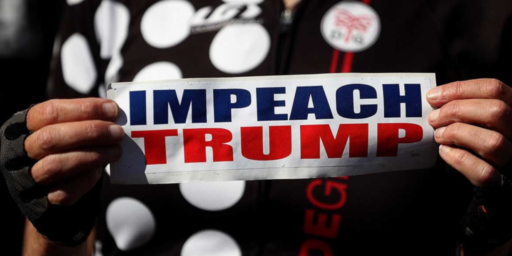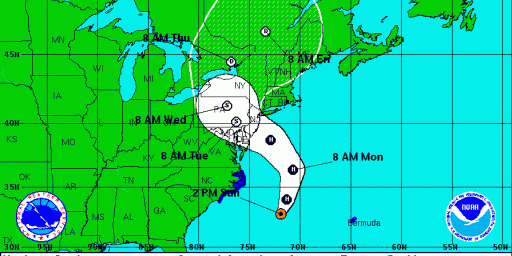Displaced New Jersey Voters Can Vote By E-Mail And Fax
Voters in communities ravaged by Hurricane Sandy and displaced from their homes will be able to take advantage of a voting method that New Jersey typically only makes available to people living overseas:
Voters in New Jersey now have two more ways to send in their ballots in an already unusual election season complicated by superstorm Sandy: via fax and email.
The Christie administration said Saturday that the additional options are aimed at giving displaced residents and emergency workers another way to vote and that the ballots would be cast provisionally. Administration officials urged people who could to vote early or through the normal process.
The administration said people could cast those ballots in two steps. First, they should email or fax an application for a mail-in ballot through their county clerk’s office.
Once that application is approved, voters can email or fax the ballot by 8 p.m. Tuesday.
“This has been an extraordinary storm that has created unthinkable destruction across our state, and we know many people have questions about how and where to cast their vote in Tuesday’s election,” said Lt. Governor Kim Guadagno, who doubles as the secretary of state and oversees elections. “To help alleviate pressure on polling places, we encourage voters to either use electronic voting or the extended hours at county offices to cast their vote.”
Sandy is presenting New Jersey, as well as locations in New York such as Staten Island, Brooklyn, Queens, Long Island, and Westchester County, with unique challenges so close to an election. Up until yesterday, the library where by Dad votes was without power and the current plan for any such locations that are still without power on Tuesday is to either use alternative locations or use trailers and generators supplied by the National Guard on the site of the designated polling place. Of course, that wouldn’t help the people in shore communities who are either disbursed elsewhere in the state or at shelters. Thus, the email/fax solution which apparently has been utilized for some time in New Jersey. It’s an interesting last minute solution, but as one computer security blogger notes, it presents its own problems:
The security implications of voting by email are, under normal conditions, more than sufficient to make any computer security specialist recoil in horror. Email, of course, is not at all authenticated, reliable, or confidential, and that by itself opens the door to new forms of election mischief that would be far more difficult in a traditional in-person polling station or with paper absentee ballots. If we worry that touchscreen “DRE” electronic voting machines might be problematic, email voting seems downright insane by comparison.
But a knee-jerk reaction to the worst case scenario is probably not helpful right now. Clearly, email voting is risky. The question is whether these risks outweigh the benefits, and whether the technical and procedural safeguards that are in place are adequate to mitigate them under these rather unique circumstances.
Unfortunately, New Jersey officials have not yet released enough information to allow for an informed analysis and judgement about whether the system will invite more problems than it solves on election day. And rolling out a robust email voting system across New Jersey’s 21 counties and at the scale required will involve solving some fundamentally difficult engineering problems.
The post goes on to list some of these challenges, all of which make clear that implementing any kind of ‘voting over the internet’ scheme any time soon is likely impractical. For this unique situation, though, and for the limited case of people living overseas, it seems like the beast answer to a big problem. In all honesty, though, I have to wonder how many of the people who have had their lives uprooted by Sandy are going to be all that interested in going through the trouble of voting this year.





I can tell you that for my grandparents, displaced to my parents’ house in Baltimore, it is a very real concern – to the point my 93 year old grandfather wants to go back up even if they still don’t have power or heat.
I would think that people currently in the midst of a natural disaster and the governments efforts at rebuilding would be acutely interested in voting.
Email and fax seems like a fine solution for provisional ballots, since there is plenty of time to verify them after the fact. Hopefully very few elections will be within margins that require counting them though — it would be very time consuming and labor intensive.
I am a bit concerned that these methods are things that are going to be more available to the displaced wealthy than the displaced poor. It will be interesting to see what outreach plans they have.
Can displaced voters vote provisionally from any polling place? That would definitely help.
If Obama wins NJ and wins the election by a margin of 10 EV or less the cries of voter fraud from the wingnuttery will be….. Words fail. The fact that Obama was going to win NJ anyway won’t matter.
@OzarkHillbilly:
EV count fail, the correct EV# is 14.
If Republicans really cared about the security issues of voting and voter fraud, their heads should explode over this.